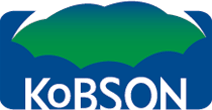Transport of Dangerous Goods – Modernization of Curricula and Development of Trainings for Professionals in the Western Balkans HEIs – DGTRANS
101082187-DGTRANS-ERASMUS-EDU-2022-CBHE


ABOUT THE PROJECT
Name: Transport of Dangerous Goods – Modernization of Curricula and Development of Trainings for Professionals in the Western Balkans HEIs – DGTRANS
Call: ERASMUS-EDU-2022-CBHE
Project webpage: https://dgtrans.pr.ac.rs/
Consortium members:
Project consortium consists of five HEIs from Programme Countries, eight HEIs from WB countries and three Associated partners:
- University of Pristina in Kosovska Mitrovica – coordinator
- Unviersity of Maribor
- Technical University of Crete
- Obuda University
- Lublin University of Technology
- University of Nis
- University of Sarajevo
- University of East Sarajevo
- University of Montenegro
- University Adriatic Bar
- Polytechnic University of Tirana
- POLIS University
- International Business College Mitrovica
- Traffic Safety Agency of Republic of Srpska
- NAFTAGAS Serbia
- Republic of Serbia Road Traffic Safety Agency
Duration: 3 years (2023 – 2026)
Objectives:
1) To improve existing and develop new TDG curricula for undergraduate and master studies in accordance with Bologna requirements and national accreditation standards through implementing new/modernized courses. These courses should cover provisions concerning dangerous goods, transport equipment and transport operations, as well as the risk assessment tools, vehicles monitoring systems, and route-planning systems based on network analyses performance. The aim of the improved study programs is to include the different disciplines such as transport, environmental sciences, politics, supply chain management, security management and the risk management needed for a safer TDG, where research institutions, members of the DG supply chain, service providers, public administrations and end-users will work together.
2) To analyse and improve current risk analysis management procedures and risk assessments on transport routes and new routing solutions into WBC. Herein, we are finding and applying the most appropriate scientific methods and the best practice about what issues should be included in risk analysis procedures to improve the safety during the TDG and how can management procedures be improved to avoid mistakes or inefficiencies during the sharing of information within a company and between different companies involved in the supply chain. Finally, we are very interested to investigate which parameters should be considered in the risk assessment of the transport routes and which characteristics and requirements should have routing software in order to be secure and to improve safety during the TDG, avoiding for example natural protected zones and highly populated areas and considering all the requirements of the transport codes.
3) To develop and implement the training program for the TDG professionals in line with ADR and up-to-date scientific knowledge on issues related to the TDG. According to ADR each TDG subject, involved in activities which include the consigning the TDG by road or the related packing, loading, filling or unloading, shall appoint one or more TDG professionals, responsible for prevention of the risks inherent in such activities with regard to persons, property and the environment.
 EN
EN



